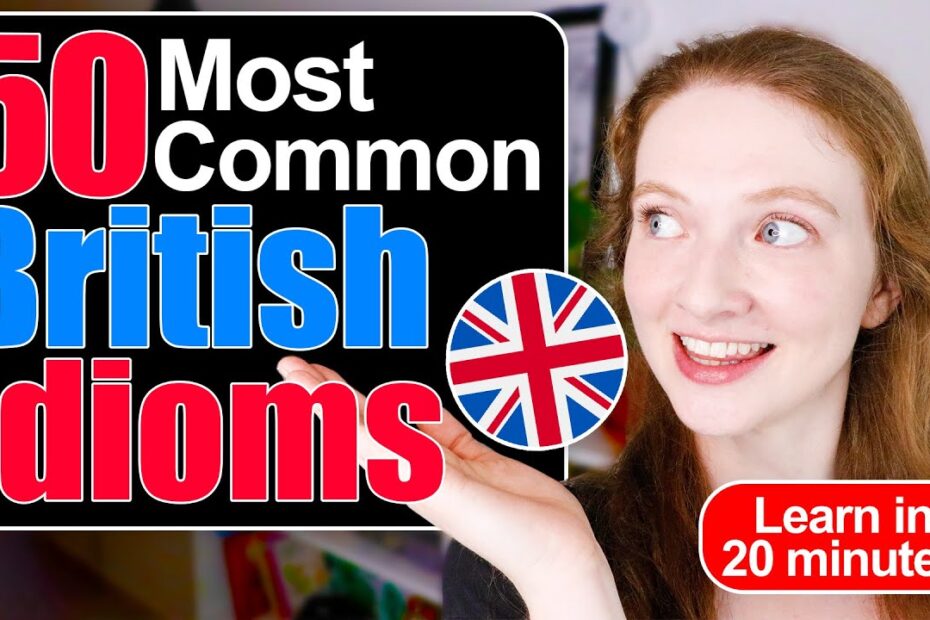British Idioms Decoded: 15 Phrases That Leave Foreigners Scratching Their Heads
Ah, British idioms—the linguistic equivalent of a teapot sprouting legs and sprinting down the high street. Just when you think you’ve mastered English, Brits hit you with phrases like “Bob’s your uncle” (translation: “and there you go!”) or “It’s chucking it down” (spoiler: no one’s hurling anything but rain). Let’s crack into this lexical biscuit tin and fish out 15 gems that’ll make you whisper, “Sorry, are you having a giraffe?” (Hint: they’re not talking about zoo antics.)
When Food Becomes Philosophy
- “Spend a penny”: A quaint way to say “use the toilet,” born when public loos cost one penny. Now? Just a cheeky reminder that inflation spares no one.
- “Nice as ninepence”: Not a typo. It means “tidy,” like a squirrel who’s just alphabetized its nut stash.
- “Full Monty”: Yes, it’s a film about nudity. But originally? A fry-up with all the greasy trimmings. Brexit-proof since 1892.
Weather or Not, Here We Complain
- “Brass monkeys”: As in, “It’s cold enough to freeze the balls off a brass monkey.” Naval slang involving cannonballs. Keep that image next time you grab a scarf.
- “Mizzling”: Not mist, not drizzle—it’s the weather equivalent of passive-aggressive humming.
- “Storm in a teacup”: Drama over nothing. Like arguing about whether crumpets should wink when buttered.
Creatures of Linguistic Habit
- “Bee’s knees”: The pinnacle of excellence. Bees, apparently, have superior joints. Who knew?
- “Pig’s ear”: To “make a pig’s ear” of something is to botch it. Visualize a hog in a DIY store. Tragic.
- “Mutton dressed as lamb”: When your Auntie Carol rocks a miniskirt at 60. Ovine fashion shaming at its finest.
So there you have it—15 phrases that prove British English is less a language and more a cryptic crosswords designed by a tipsy badger. Next time someone says they’re “chuffed to bits” (delighted) or tells you to “keep your pecker up” (stay cheerful—*ahem*), just nod. And maybe invest in a phrasebook. Or a therapist.
Why British Idioms Are More Than Just Quirky Sayings: Cultural Insights and Modern Usage
They’re Linguistic Marmite (And We’re Spreadin’ ’Em)
British idioms aren’t just phrases; they’re cultural handshakes wrapped in sarcasm and steeped in history. Take *“Bob’s your uncle”*—a cheeky nod to nepotism from 1887, when Prime Minister Robert Cecil gave his nephew a cushy job. Today, it’s a way to say *“easy peasy”* while winking at Britain’s long-standing love affair with bureaucratic irony. These sayings aren’t random. They’re relics of empire-building, tea-hoarding, and queuing so politely you’d apologize to a lamppost for bumping into it.
From Shakespeare to Slack: Modern Mischief
Think British idioms are stuck in a Dickens novel? Think again. They’ve infiltrated modern chatter like a cuppa in a crisis. Ever heard someone say *“throw a wobbly”* (translation: have a meltdown) in a Teams meeting? Or describe chaos as *“all gone Pete Tong”* (thanks, 1980s club culture)? These phrases thrive because they’re flexible. Need to mock a trivial drama? Call it a *“storm in a teacup.”* Want to exit awkwardly? *“Right, I’ll leg it before the pub’s skint.”* They’re survival tools for navigating Brits’ emotional T-Rex arms—too stiff for sincerity, too polite for silence.
Tea-Time Linguistics: A Flavour of Identity
British idioms are cultural flashcards. For instance:
- “Not my cup of tea” = A polite “heck no,” often used to reject everything from kale smoothies to dubstep.
- “Spend a penny” = To pee, harking back to 19th-century pay toilets—now a whimsical way to avoid saying “loo.”
- “Minted as a Cadbury’s pig” = Flush with cash, blending capitalism with chocolate nostalgia.
They’re absurd, yes, but they glue together the British psyche—a mix of humility, humor, and passive-aggressive drizzle.
Why They Stick: The Absurdity Anchor
Brits cling to idioms like seagulls to chips because they’re socially acceptable code. Saying *“it’s brass monkeys out there”* beats admitting you’re freezing your kneecaps off. Calling someone *“a few sandwiches short of a picnic”* softens the blow of “you’re bonkers.” In a world of emojis and AI, these phrases are rebellion—proof that language can be playful, illogical, and still pack a punch. After all, where else can *“the dog’s dinner”* mean both a mess and a fashion statement? Only in Britain, where absurdity is the national sport (after complaining about the weather).
